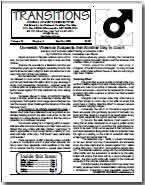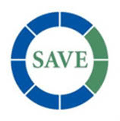
By the time Jade’s partner began beating her in public, she’d been suffering under a reign of abuse for years. Unfounded accusations of adultery, followed by king hits to the head.
“I’m intelligent and confident, big and loud, I didn’t look like someone who would be beaten up so easily,” said *Jade, who didn’t want to use her real name.
Her abuser wasn’t an angry husband or jealous boyfriend, but a woman. She was “small and blonde” Jade said, and at least when their relationship first began, “really sweet and lovely.”
It was when the two were collaborating together on a work project that her partner became so bold as to make the abuse public.
“She said to me ‘you disgust me’, hit me to the ground and kicked me in the head in front of six people,” said Jade, who is in her 40s.
“And the worst thing was I got left there. Even though they physically saw me get assaulted in a really bad way they questioned what they had seen. People didn’t want to get involved; they thought I must have done something terrible and I got really traumatised because no one helped me.”
VIOLENCE BY WOMEN NOT RECOGNISED
Jade said violence perpetrated by women on women is often not recognised. “People think it’s a joke that you’re being beaten by your girlfriend, some thought I should just get over it, that it can’t be serious thing that a girl would harm another girl.
“If it was a man who did that to me, I would have been taken to hospital and he would have been arrested.”
Instead it was Jade, suffering from trauma and the injuries of regular beatings, that ended up losing her job and her home while her partner escaped blameless.
It’s a familiar tale. Groundbreaking new research, released this week, showed more than half of gay Australians have been in an emotionally abusive relationship and one-in-five has been physically hurt by their current partner. Four per cent of LGBTI people in a relationship reported being raped by their partner.
The CEO of Domestic Violence NSW, Moo Baulch, said rates of abuse in LGBTI relationships was similar to that between straight couples but awareness of the issue was lagging far behind.
“We find it hard to talk about this stuff in the same way that we do in the mainstream spectrum. It’s a hidden thing, it happens in people’s homes, there’s a level of fear or shame about seeking support and you have these extra levels in LGBTI relationships.”
Many people suffering in toxic LGBTI relationships might be fearful of having their sexuality, or potentially their HIV status, outed to family and friends. Domestic violence services also needed to look at how they could better serve the LGBTI community, Ms Baulch said.
“You can’t just stick a rainbow flag on the door and say we’re friendly. You really need to think about your services. The majority of victims of are heterosexual women but we don’t have safe services set up, for example, for gay men to take a couple of kids if he’s escaping domestic violence.
ABUSIVE RELATIONSHIPS
The Calling It What It Really Is report, produced with organisations including Sydney’s Inner City Legal Centre, NSW Police, LGBTI health body ACON and the City of Sydney, found gay men and women faced similar levels of abuse from partners or family members. However, lesbians were at a significantly higher risk of violence from another women they knew than straight women. While transgender, gender diverse and intersex people were in even more danger with more than half reporting physical abuse in past relationships.
Director of the Centre for Social Research in Health at the University of NSW, John de Wit, said the results were alarming: “The rate people say they have experienced abuse is actually shocking as is the lack of awareness among people that they’re being abused.”
“These things can be quite insidious. People love the person they’re with and they come up with all sorts of excuses why this isn’t the real person that they love and how they are actually quite a good person,” he said.
In August, the NSW Government said they would plough more than $100,000 into initiatives to tackle domestic and family violence within the LGBTI community, reported the Star Observer.
“Everyone would leave their domestic violence partner if it was easy to do so,” said Jade who was diagnosed with post-traumatic stress order following her ideal.
“I would just be on the ground crying. My self-worth was so low; I was isolated and shrouded in shame. I lost my ability to look after myself and I felt really trapped.”
Jade, who escaped her abuse several years ago, said she benefited from accessing support services and urged anyone in a violent relationship to seek help.
“People don’t know how to read same-sex domestic violence … but violence is not gender specific. Whether it’s a man or a woman hitting you, you’re still being hit.”
*Name changed to protect identity.
If you have experienced sexual assault or domestic and family violence you can access the 1800RESPCT helpline for 24/7 confidential support on 1800 737732 or www.1800respect.org.au.
Specific information and advice about domestic violence in LGBTI relationships and families can be found at www.anothercloset.com.au.


